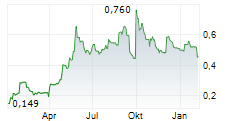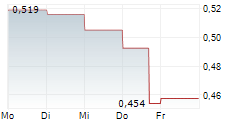Gothenburg, August 25, 2025 - Elicera Therapeutics AB (publ), a clinical stage cell and gene therapy company developing next generation cancer treatments based on oncolytic viruses and CAR T-cell therapies, armed with immune-activating properties via the company's commercially available iTANK platform, today announces preliminary data from the first two cohorts of the ongoing Phase I/IIa CARMA study with ELC-301. The results, assessed by the principal investigator, show that 4 out of 6 treated patients achieved complete metabolic response (CMR, no active disease). The data will be presented today at the inauguration of the Karolinska ATMP Center in Flemingsberg, Sweden.
The CARMA study evaluates the safety and efficacy of ELC-301 in patients with relapsed or refractory B-cell lymphoma. The study includes a dose-escalation phase (Phase I, 12 patients) and a dose-expansion phase (Phase IIa, 6 patients). ELC-301 utilizes the iTANK platform to activate a broader immune response against cancer cells.
The primary aim of the Phase I study is to investigate the safety of ELC-301. No severe or unexpected adverse events have been observed in the first two cohorts, and the study's independent Data Safety Monitoring Board has therefore recommended that the evaluation of ELC-301 can proceed to the third and final dose cohort, where six patients will receive the maximum planned dose (10 times Cohort 1).
Professor Magnus Essand, Chief Scientific Officer and co-founder of Elicera Therapeutics, will present the data today at the inauguration of the Karolinska ATMP Center in Flemingsberg, Sweden. Preliminary data assessed by the principal investigator include:
Cohort 1 (Lowest dose, 1/10 of planned maximum dose, n=3):
• Two patients achieved complete metabolic response (CMR, no active disease) at the one-month follow-up (month 1). One patient later showed progressive disease at the 3-month follow-up, while the other remained disease-free at the 9-month follow-up.
• One patient showed stable disease at month 1, followed by progressive disease at the 3-month follow-up.
Cohort 2 (Three times the lowest dose, n=3):
• Two patients achieved CMR at month 1, with one patient having completed the 3-month follow-up and remaining disease-free.
• One patient achieved partial response at month 1, which persisted at the 3-month follow-up.
"We are highly encouraged that 4 out of 6 patients in the first cohorts with low doses achieved complete metabolic response, including one patient who previously relapsed on CD19-targeted CAR T-cell therapy," said Jamal El-Mosleh, CEO of Elicera Therapeutics. "These early data underscore the potential of our iTANK-armed ELC-301 to offer a new treatment option for patients with difficult-to-treat B-cell lymphoma."
For further information, please contact:
Jamal El-Mosleh, CEO, Elicera Therapeutics AB (publ)
Phone: +46 (0) 703 31 90 51
jamal.elmosleh@elicera.com
Certified Advisor
Mangold Fondkommission AB
About the CARMA Study
CARMA is a phase I/IIa clinical study evaluating the safety and efficacy of the CAR T-cell therapy ELC-301 in the treatment of patients with B-cell lymphoma. The study is divided into a dose-escalation phase (phase I) and a dose-expansion phase (phase IIa). Phase I primarily aims to establish the optimal dose and safety profile in up to 12 patients, while phase IIa will further evaluate the efficacy of the maximum tolerated dose in an additional six patients. Phase I is planned to include three cohorts (dosing groups), with three patients in the first and second cohorts, and six patients in the third dcohort, who are expected to receive the maximum tolerated dose. The CARMA study is being conducted at Uppsala University Hospital and Karolinska University Hospital in Huddinge.
About ELC-301
ELC-301 is a fourth-generation CAR T-cell therapy targeting the CD20 antigen, armed with the company's iTANK platform to activate a broader and more comprehensive parallel immune response against cancer. CAR T-cells are a form of cell therapy created by genetically modifying a patient's T-cells to express a synthetic receptor (chimeric antigen receptor, CAR). This receptor is specifically designed to target a single tumor antigen-a molecule visible on the surface of cancer cells-and enables the T-cells to locate, bind to, and destroy the cancer cells.
About the iTANK-platform
The iTANK technology platform has been developed for arming and enhancing CAR T-cells to meet two of the major challenges CAR T-cell therapies face in the treatment of solid tumors: a very diverse set of tumor antigen targets and a very hostile tumor microenvironment. The technology is used to incorporate a transgene into CAR T-cells encoding a neutrophil activating bacterial protein (NAP). NAP secreted from the CAR(NAP) T-cells has been shown to be able to enhance the function of CAR T-cells and importantly activating a parallel bystander immune response against the cancer via CD8+ killer T-cells. This is expected to lead to a broad attack against most antigen targets on cancer cells. The iTANK platform is used to enhance the company's own CAR T-cells but can also be universally applied to other CAR T-cell therapies under development. Proof-of-concept data was published in Nature Biomedical Engineering in April 2022. The publication, titled "CAR T cells expressing a bacterial virulence factor triggers potent bystander antitumor responses in solid cancers" (DOI number: 10.1038/s41551-022-00875-5) can be found here: https://www.nature.com/articles/s41551-022-00875-5. More information about iTANK platform is available here: https://www.elicera.com/technology
About Elicera Therapeutics AB
Elicera Therapeutics AB (publ) has developed the patented gene technology platform iTANK that enables the arming of new and existing CAR T-cell therapies targeting aggressive and relapsing cancer forms. Elicera Therapeutics thereby addresses a well-defined and vast market. The company's CAR T-cell therapies have shown a potent effect toward solid tumors which are recognized as particularly difficult to treat and constitute the majority of cancer cases. The company addresses a global multibillion market in cell therapy through its offering of non-exclusive licensing of the iTANK-platform to companies in the pharmaceutical industry. Elicera Therapeutics has four internal development projects in immune therapy that separately have the potential to generate substantial value through exclusive out-licensing agreements. The company's share is traded on Nasdaq First North Growth Market. For additional information, visit www.elicera.com.


